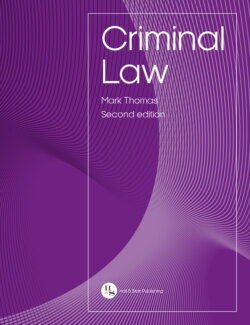Читать книгу Criminal Law - Mark Thomas - Страница 26
На сайте Литреса книга снята с продажи.
1.6.3.1 European Union
ОглавлениеThe origins of the EU, as we know it, can be located in the Treaty establishing the European Economic Community (EEC) 1957 (Treaty of Rome), signed by six founding states. This was the Treaty that set the foundations that the EU is built upon today. The UK joined the EEC in 1973 following the enactment of the European Communities Act (ECA) 1972.
The EU is built on three pillars and its role was traditionally understood as regulating trade and commercial matters in Member States. Criminal law matters have remained, largely, a matter for the Member States to decide for themselves. In this respect, it can be said that, traditionally, the EU lacked the competency to legislate in criminal law matters – this would explain the lack of consistency or uniformity across EU Member States in such matters as the age of criminal responsibility (see Chapter 7) and the age of consent to sexual conduct (see Chapter 10). In more recent years, however, EU law has been seen to have some impact on the domestic criminal law in the context of trafficking offences and European arrest warrants.
Ultimately, however, English and Welsh criminal law remains largely a matter of national regulation. As a result of the European Union Referendum Act 2015, a national referendum as to whether the UK should leave the EU was held on 23 June 2016. By a narrow margin, the vote to leave was successful and the UK is now in the process of formally removing itself from the EU. The future influence of EU law generally remains largely unknown; however, it is certain that the domestic criminal law will for the most part go untouched.
